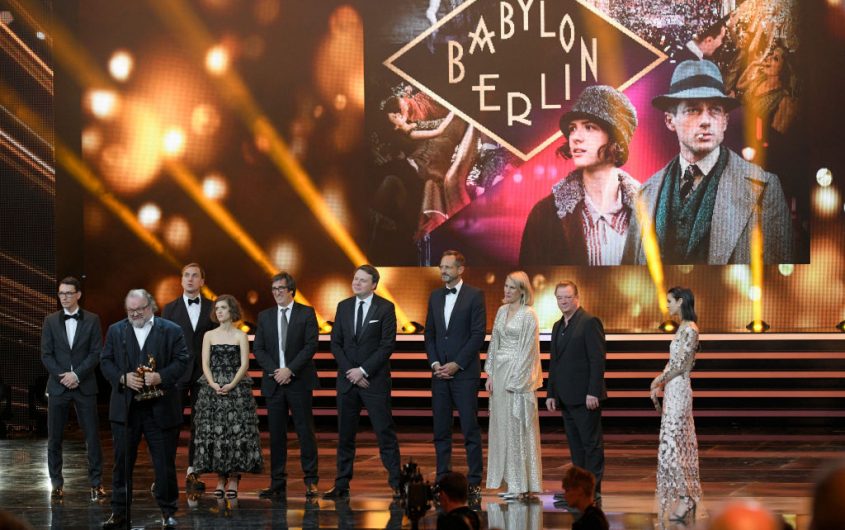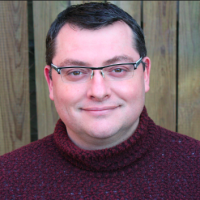
Robert Schlesinger/Getty Images
Watching Germany during the Pandemic

Eric Langenbacher
Senior Fellow; Director, Society, Culture & Politics Program
Dr. Eric Langenbacher is a Senior Fellow and Director of the Society, Culture & Politics Program at AICGS.
Dr. Langenbacher studied in Canada before completing his PhD in Georgetown University’s Government Department in 2002. His research interests include collective memory, political culture, and electoral politics in Germany and Europe. Recent publications include the edited volumes Twilight of the Merkel Era: Power and Politics in Germany after the 2017 Bundestag Election (2019), The Merkel Republic: The 2013 Bundestag Election and its Consequences (2015), Dynamics of Memory and Identity in Contemporary Europe (co-edited with Ruth Wittlinger and Bill Niven, 2013), Power and the Past: Collective Memory and International Relations (co-edited with Yossi Shain, 2010), and From the Bonn to the Berlin Republic: Germany at the Twentieth Anniversary of Unification (co-edited with Jeffrey J. Anderson, 2010). With David Conradt, he is also the author of The German Polity, 10th and 11th edition (2013, 2017).
Dr. Langenbacher remains affiliated with Georgetown University as Teaching Professor and Director of the Honors Program in the Department of Government. He has also taught at George Washington University, Washington College, The University of Navarre, and the Universidad Nacional de General San Martin in Buenos Aires, Argentina, and has given talks across the world. He was selected Faculty Member of the Year by the School of Foreign Service in 2009 and was awarded a Fulbright grant in 1999-2000 and the Hopper Memorial Fellowship at Georgetown in 2000-2001. Since 2005, he has also been Managing Editor of German Politics and Society, which is housed in Georgetown’s BMW Center for German and European Studies. Dr. Langenbacher has also planned and run dozens of short programs for groups from abroad, as well as for the U.S. Departments of State and Defense on a variety of topics pertaining to American and comparative politics, business, culture, and public policy.
__
As most of us sit, shut-in at home, in the midst of a (hopefully) once-in-a-lifetime pandemic, there are many off hours and nowhere to go. Everyone seems to be watching content online at record numbers. And there are limits to how much cable news, memes, or Facebook posts one can watch. Of course, there is a steady stream of articles from AGI! In any case, at these moments in search of things to watch and perhaps even to feel somewhat productive, it is a great opportunity to re-connect with one’s interests.
For those interested in Germany, I have come up with some recommended shows and films to watch—in consultation with AGI colleagues. The following list provides insight into German culture, representations of how Germany is (self-) portrayed, and opportunities to brush up on one’s language skills. We can use this shutdown to catch up on things we missed or to finally watch those classics that we’ve been meaning to for years. Needless to say, many of these shows are also incredibly entertaining.
Given the amount of content, I will divide my lists into several articles, starting with television and then turning to more recent and classic films. Please note that this list is on the more contemporary side and represent my own idiosyncratic preferences.
Television Shows
Babylon Berlin
This list has to begin with the most expensive, most popular, and (in my opinion) most entertaining series in German history: Babylon Berlin, available on Netflix. There is nothing that is not awesome about this series. Set in Berlin during the wild days of the Weimar Republic, the series recreates the 1920s exquisitely. The hedonism (epitomized in the Moka Efti Club), creative tumult of those times (season 3 features a film production), as well as the lingering trauma from WWI and the premonitions of worse to come are all on display. Besides the specific crimes being investigated, the plot revolves around a variety of conspiracies in which right-wing and proto-Nazi forces are trying to subvert the democratic order. Volker Bruch as the main police detective and war-traumatized Inspektor Gereon Rath and Liv Lisa Fries as the superb Charlotte Ritter, an ambitious working-class woman who does what it takes to care for her family and pursues a career with the police, are standout acting performances, capturing the many ways people were damaged at that time. At least one more season is envisioned, but one can hope for many more.
Deutschland 83
Also, outstanding—not the least for the awesome 80s neue deutsche Welle soundtrack—is Deutschland 83. A German Cold War thriller, the plot is about an East German spy who, under deep cover in the West, insinuates himself in the family of a high-up Bundeswehr general. The personal plotlines are also heart-wrenching, dealing with familial conflicts, deceptions small and large, and the nature of life in divided Germany. The follow-up Deutschland 86 is good but not as great as the original. One can only wait for Deutschland 89, which is supposed to air this year, but may be delayed.
Dark
For more contemporary fare, there is the sci-fi series Dark (also on Netflix, two seasons with another in the works). This dense, slow-moving show has been called a weirder and more philosophical Stranger Things. The show has moments of great tension and brilliance, but does miss the mark at times. The plot and time travel twists can be difficult to follow, and there are few appealing characters. The cast is quite expansive, so it can be difficult to keep track of everyone all the time. That said, it is well worth the effort when mysteries start to become comprehensible and the villainous forces reveal themselves. In my opinion, the series also hits on several aspects of German culture and collective psychology—the foreboding appeal of the forest, an angsty kind of Weltschmerz, and the deep sub-rational fear of anything nuclear. Unusually, the second season is even more captivating than the first.
All of these shows were made with international distribution in mind—not that that takes away from their quality. Interestingly, many of these productions have a historical setting or theme. Germans have indeed been consumed and even haunted by their past for quite some time—topics that also apparently resonate internationally.
What Do Germans Watch?
But what do Germans themselves watch? First and foremost, there is soccer. As an aside, I was in Bonn when it was still the capital in summer 1998 and a World Cup match with die Mannschaft began. I have never seen a city empty so suddenly. And when you see the figures—25 to 35 million viewers for international tournament matches—the country’s obsession is pretty clear. By the way, the only non-sporting event on the most-viewed list is an episode of Die Schwarzwaldklinik, a medical serial inspired by Dallas and General Hospital that aired from 1985-1989. Other currently popular series inexplicably include a reality show, Ich bin ein Star – Holt mich hier raus!, informally dubbed das Dschungelcamp (jungle camp) in which viewers can vote B-list celebrities off the show; and the soap opera running since 1992, Gute Zeiten, Schlechte Zeiten, based on young people in Berlin.
There is nothing more popular among German audiences than the weekly police procedural Tatort. There are approximately 1,500, 90-minute episodes dating back to 1970. One of the unique aspects of this show (always airing in the main public channel, ARD, after the news at 8:15 on Sundays) is that the various episodes are filmed in different regions of the country with different investigative teams. Thus, there is Tatort Köln, Stuttgart, Kiel, Essen, Munich—and given its popularity in Austria and Switzerland, Vienna and Bern. The various actors who have played detectives are some of the most famous actors in the country: Maria Furtwängler, Götz George, Klaus J. Behrendt, Til Schweiger to name just a few. Some noteworthy and highly watched episodes in recent years include Tatort Münster, “Spargelzeit” (2010), which incidentally thematizes a German culinary obsession, though likely not this year; Hanover, “Wegwerfmädchen” (2012); Köln, “Der Fall Reinhardt” (2014); Hamburg, “Willkommen in Hamburg” (2013); Münster, “Mord ist die beste Medizin” (2014). Given how long this series has persisted and the continued good ratings it gets (high-brow newsmagazine Der Spiegel even has an article about each week’s episode), there is perhaps nothing that is better at revealing German society and culture than this series.
I will end this installment by mentioning a couple of shows that are highly recommended, but still on my queue. Many have raved about the recently-released Unorthodox (Netflix), a series that follows a woman trying to leave her Brooklyn Jewish community for contemporary Berlin. Also on my list are Bad Banks, Türkisch für Anfänger, Stromberg, and Ritas Welt.
How to Watch
The Netflix series are available with English subtitles through your subscription. Some of the German series such as Die Schwarzwaldklinik and Tatort are posted on YouTube. Contemporary Tatort episodes can also be seen through the ARD website. Other shows like Ritas Welt can be found on the RTL website, although this might not play in your jurisdiction. Certainly, the many shows can be purchased on DVDs.








